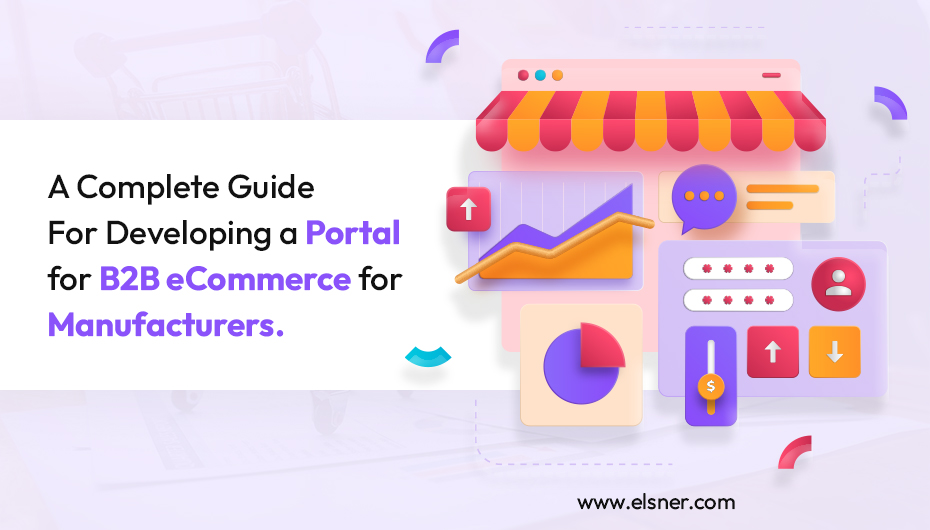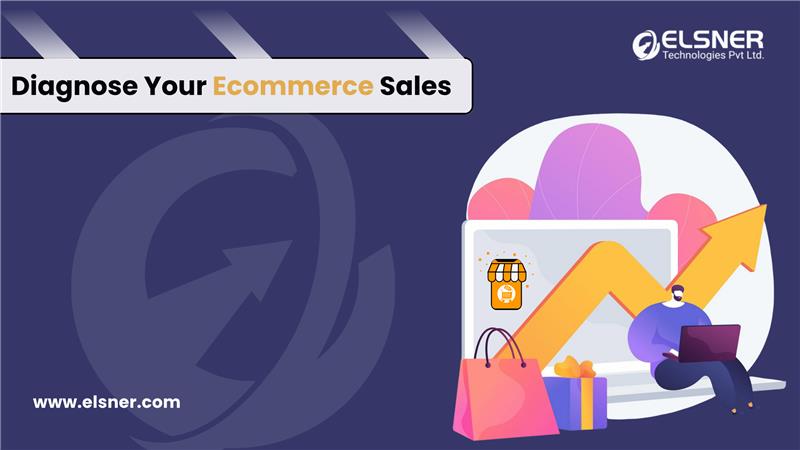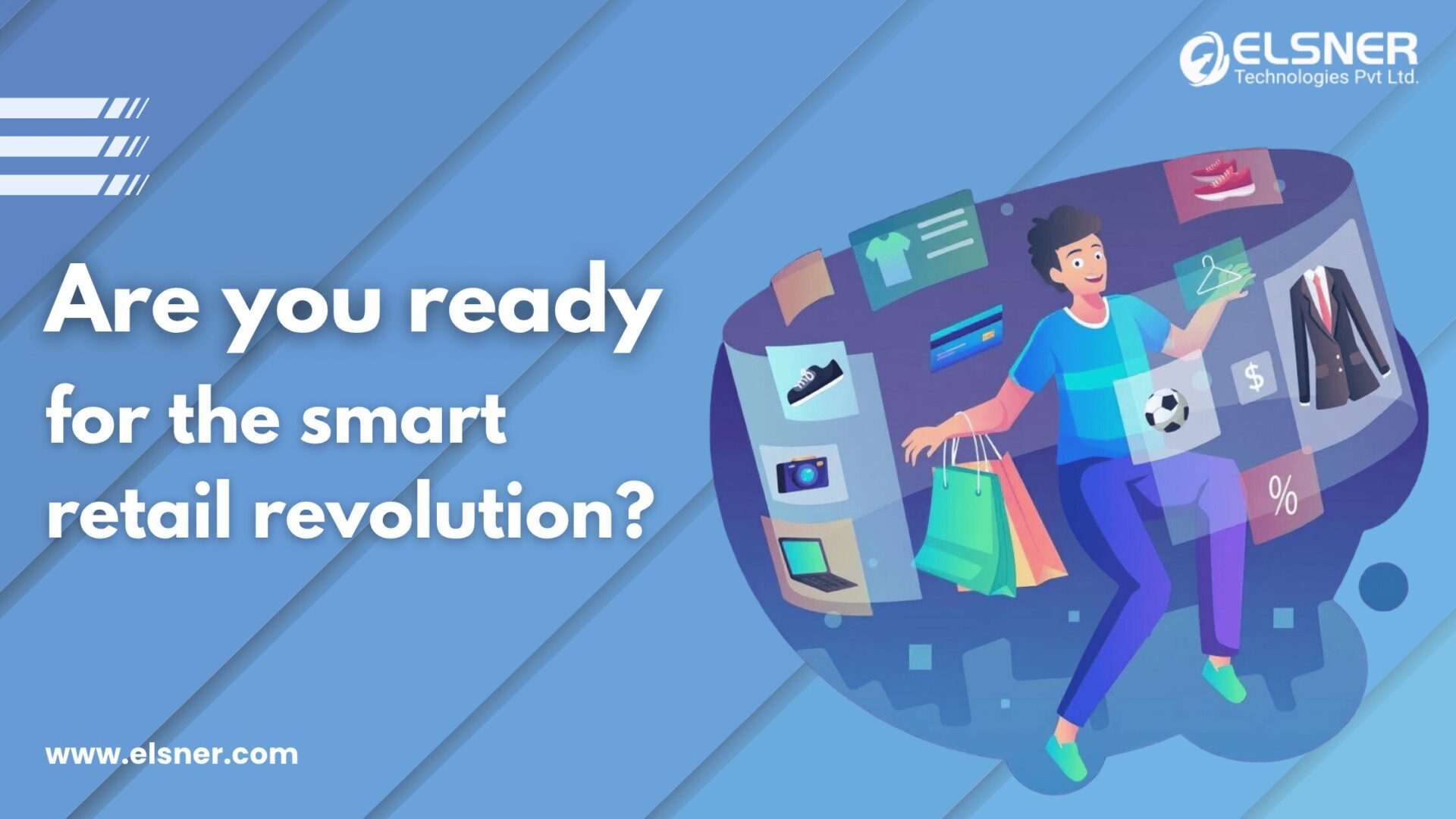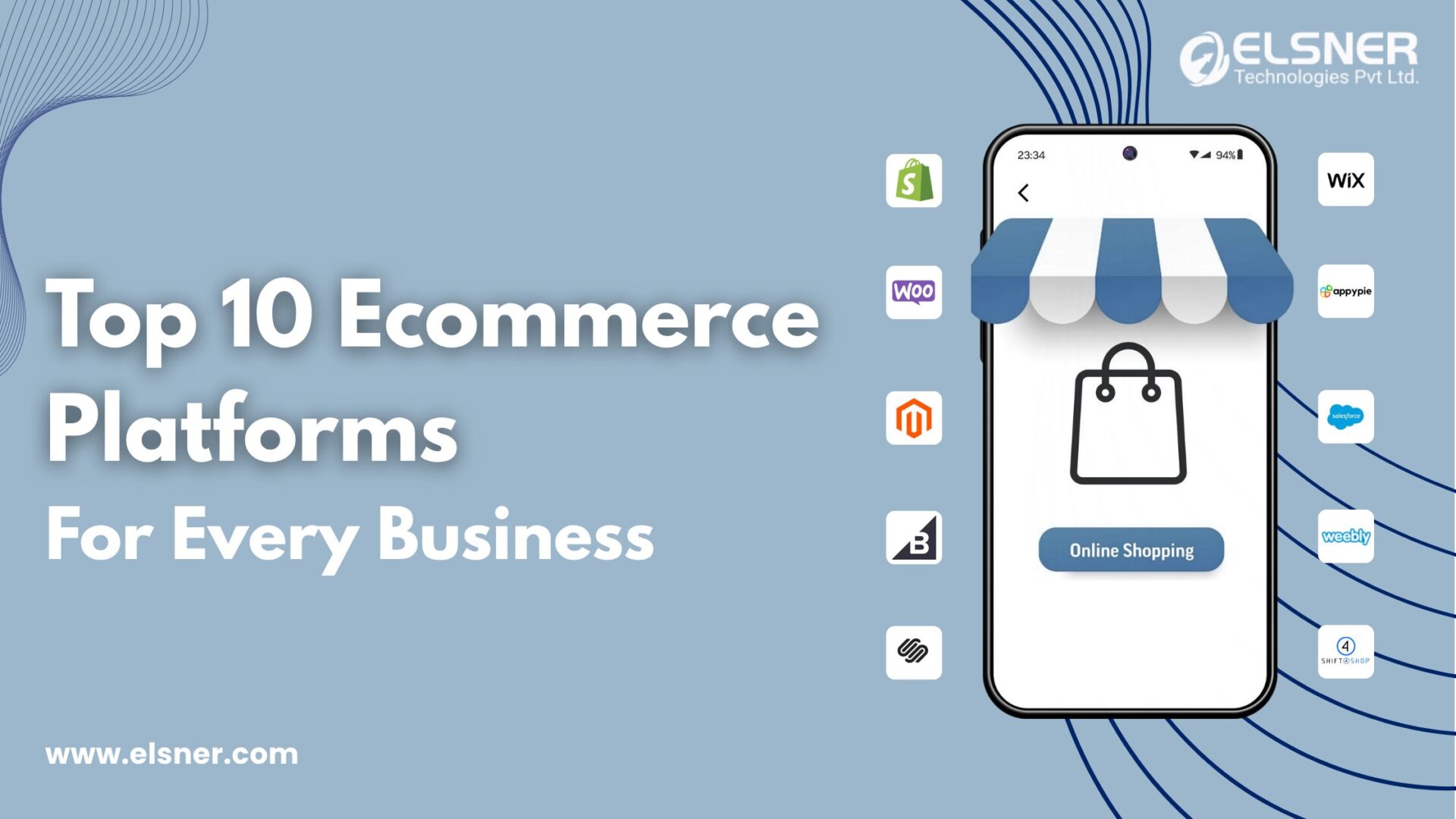- What is a Self-Service B2B Portal?
- Challenges of Building a B2B Ecommerce Store
- Choosing the right technology
- Storing Multiple Brands in One Portal
- Customization Issues
- Taking care of Integrations
- Implementing B2B and B2C Models Together
- How does a Self-service Portal Help Manufacturers?
- Order Receiving Made Easy
- Order Processing is Flawless
- Vendor Management is Simple
- Easy and Effortless Shipping
- What Are The Reasons to Go For a B2B Ecommerce Portal?
- Explore New Territories
- Improve Your Customer’s User Experience
- You Can Increase Revenues and Profits
- You can Retain Your Customers.
- It Offers You Real-time Data
- What Are the Best B2B Ecommerce Self-Service Portal Practices?
- Take Care of The User Adoption Part
- Add Features in The Portal Gradually
- Offer a Comprehensive User Experience
- Add Informative Content
- Quick and Seamless Ordering is Essential
Even today, going digital is not what a manufacturer thinks.
Manufacturers are most comfortable with their traditional marketing and sales channels and approaches.
However, the world is changing, and manufacturers now understand the importance of going digital. Also, the B2B buyer expectations are changing rapidly with time.
If you compare, the manufacturing ecommerce is growing rapidly from 18.1% in 1999 to 67.3% in 2018.
Still, many manufacturers were idle without transforming their business models to digital.
And Covid-19 struck.
Everything changed drastically for them.
Today, B2B ecommerce for manufacturers is the need of the hour. There is no scope for selling goods in traditional ways.
If you have not become part of the ecommerce train, book your tickets now, or it will be too late.
Your customers will move away from you, embracing your competitors.
Not a good sight to dream, right?
All your customers, whether dealers, distributors or direct buyers, want a B2B ecommerce portal that offers them a superlative user experience similar to what Amazon or eBay give consumers.
That is where a self-service B2B ecommerce portal comes into the picture.
With a self-service ecommerce portal, you can target many features with a single arrow.
You can simplify sales processes, improve customer relationships, and increase profit margins greatly.
A study by Mckinsey & Co. revealed that 75% of customers prefer digital self-service and remote communication. What they prefer is an online portal where they can buy products flawlessly.
In addition, 86% of B2B customers said they would go online for reordering.
All you need to do is to offer what they are looking for- A self-service B2B ecommerce portal that can address their concerns and provide a seamless user experience.
Hire professional ecommerce development services and develop a user-friendly, intuitive, and impressive store.
What is a Self-Service B2B Portal?
Before we delve more into a self-service B2B ecommerce portal, let’s understand what it is.
A B2B self-service portal is similar to going to the supermarket and buying groceries.
Here, a B2B buyer will come to your store and can access products and make purchases.
You don’t have any manual interference in the process, leading to a few errors and glitches.
Furthermore, that is what your customers are looking for. They are more comfortable buying from a self-service portal rather than involving humans.
Challenges of Building a B2B Ecommerce Store
Yes, there are challenges when you plan to develop an ecommerce store dedicated to a B2B business.
Here is a list of challenges that might come across during your B2B ecommerce store development:
Choosing the right technology
There is a long list of ecommerce development platforms or technologies available in the market. Choosing the right one that perfectly suits your business requirements is challenging.
For example, you might face a dilemma whether to go for Shopify or Magento ecommerce store for your business.
Experts might help you to address this concern. You need to choose a flexible, scalable, and highly secure platform.
An ideal platform must address various enterprise-level requirements such as order volume management, vendor management, customer relationship management, payment processing management, etc.
Storing Multiple Brands in One Portal
If you are developing an ecommerce marketplace, you will have to incorporate products from various brands.
Well, it looks interesting in the first place, but it requires a lot of back-end work.
That is why you need a professional service provider to develop B2B ecommerce for manufacturers.
Customization Issues
Another thing that is highly frustrating for store owners is customization.
One-size-fits-all products don’t work with enterprise businesses. You must customize products per individual business needs, such as order flows, systems, custom requirements, etc.
It is time-consuming, and you need a full-fledged team to handle it.
Taking care of Integrations
Most of the time, you will need to integrate various third-party integrations into your store to meet customer expectations. For example, your customers expect a full-proof payment gateway for quick checkouts. You need to facilitate this request by adding a third-party payment gateway plugin or extension in the store.
Implementing B2B and B2C Models Together
If your products are not limited to just B2B customers, why not reach out to B2C customers? You can increase your revenues and profits to a great extent by doing so.
You can easily have a store that addresses B2B and B2C enterprise-level requirements. It can skyrocket your growth and address customers’ expectations as well.
How does a Self-service Portal Help Manufacturers?
Before hiring a Shopify development team, you must know how a portal can help your business.
Here is a list:
Order Receiving Made Easy
Here, you can easily receive orders from the customers through the portal. Ensure that you offer the best user experience to lure them.
Order Processing is Flawless
Here, you can process all the orders received through this portal. Now, all you need to do is to send them to customers.
Vendor Management is Simple
Vendors can register themselves to the portal, and you can easily manage them with relevant notifications and communication.
Easy and Effortless Shipping
Shipping is a vital part of any ecommerce business as it requires the collaboration of all logistic stakeholders. With a self-service B2B portal, you can make the shipping of the products effortless.
What Are The Reasons to Go For a B2B Ecommerce Portal?
[ Image Source : https://shorturl.at/fsG08 ]
Explore New Territories
One of the reasons why you need a B2B ecommerce portal is to expand your business, especially to unexplored territories.
When you transform your business digital, you have the opportunity to reach out to those unexplored markets across the globe.
Ensure that your portal supports various languages and currencies and that you are good to go.
Improve Your Customer’s User Experience
Online shopping is an addiction. People simply love it as it offers comfort and convenience. They can shop while sitting on their sofas, sipping coffee.
When you facilitate your customers with an ecommerce portal that is user-friendly, simple, and easy to navigate, they will surely reciprocate.
A portal for B2B ecommerce manufacturers can improve your customers’ user experience by offering utmost comfort and convenience.
They can search for products, add them to the cart, and check out quickly without moving an inch. It is something they expect. All you need to do is to deliver it to them.
You Can Increase Revenues and Profits
One of the best things about a self-service portal is it makes your customers happy and content.
Furthermore, it also offers you an opportunity for upselling and cross-selling.
In short, you can make your ecommerce store a profit-making machine.
You can Retain Your Customers.
When you help customers find what they are looking for, they will reciprocate.
A study reveals that ecommerce store that offers self-service to their customers retain their customers up to 85% every year.
You can retain your customers by offering them what they need. When satisfied with your products and services, they will show their loyalty to the brand.
It Offers You Real-time Data
Yes, one of the biggest benefits of going digital is data.
Metrics show you almost everything you need to know about your customers.
You can see your conversion rate, bounce rate, page views, customers’ spending on a particular page, and everything else.
You can make data-centric decisions to make your store more customer-friendly and scalable.
Hire professional SEO services or data science services that can help with page optimization and data analysis to get a more scrutinized view of available data.
What Are the Best B2B Ecommerce Self-Service Portal Practices?
Take Care of The User Adoption Part
So you have hired expert developers, QAs, designers, and managers to develop a self-service B2B ecommerce portal, but your customers don’t like the end product.
All your efforts, time, and money went in vain.
That is where User Adoption matters.
The user adoption model is all about gradually moving your business to digital.
You need to keep both traditional and digital modes open for your customers.
Then, you must request your customers to use the digital way and get their feedback and reviews.
Developing a self-service B2B ecommerce portal is a massive undertaking. You need to facilitate your customers one step at a time.
You must train your sales team for a portal and explain its needs and benefits.
The sales representatives also need to support customers while familiarizing them with new services.
At the same time, you must continuously monitor key metrics and analytics to assess how a portal is performing. You can take this available data to make amendments to your strategy and offerings.
Add Features in The Portal Gradually
As we have discussed in the previous section, you don’t need to develop a portal in one go but gradually.
When you consider a B2B ecommerce portal, don’t think of it as a mere portal to sell your products but as an integration possibility between you and your B2B customers.
Hence, don’t develop a comprehensive portal at once, but start providing features to your customers one by one.
You might wonder which feature to add first.
Well, it depends on the business you are in. You can simply start with the order authorization feature.
If your traditional way of ordering is via phone, your sales team can send the order confirmation link via a message.
Then, you gradually add more features such as order status, online payment, invoice history, etc.
Offer a Comprehensive User Experience
Your B2B ecommerce for manufacturers must offer your customers a highly satisfying user experience.
If your portal fails to do it, there is no need to develop a portal in the first place.
User experience plays a huge role in keeping your customers engaged on the website. It also brings down the bounce rate and increases conversions.
What are the tips to offer a fulfilling user experience? Here is a list of suggestions:
- Make sure that the users can navigate the B2B ecommerce portal seamlessly. If there are any navigational issues, work on them and address them upfront.
- Ensure all CTAs are catchy and serve the core purpose of luring your visitors.
- Ensure that all buttons and links are working fine.
- Make sure that your website is SEO-friendly and searchable.
- Ensure all pages are SEO-optimized with relevant keywords, meta descriptions, and titles.
- Add images on the product pages to give a first-person impression to users.
- Ensure that the portal is mobile-responsive.
- Check the loading speed and take necessary actions if the speed is low.
Add Informative Content
The main, invisible purpose of developing a portal is to inform visitors about your offerings. Ensure that the portal fulfills it.
When a visitor comes to the portal, he must be able to get the information effortlessly. This is the core requirement.
For example, you will come across many such ecommerce portals where you cannot find how to contact the company.
Nothing disappoints a potential buyer more than not finding the right information when he seeks it.
Ensure that it does not happen when he is on your portal.
How to provide information to your visitors flawlessly?
Here is a list of tips:
- Add chatbots to your portal to facilitate your visitors with information.
- Have a powerful search bar to access products.
- Add a list of FAQs to provide information to your visitors.
- Though B2C portals don’t need community forums, it might work for B2B portals where buyers can discuss products, services, and other concerned parameters.
- You can add Knowledge Hubs to your portal, where customers can find information about product installation, troubleshooting, and other issues.
- Let your users download important documents such as user manuals, product installation guides, case studies, white papers, and other documents.
Quick and Seamless Ordering is Essential
How does it feel when you cannot order easily on any portal? Would you recommend that store to anyone?
Millennials are impatient. If your B2B ecommerce portal takes too much time to load, it will frustrate them.
Similarly, they will not give you a second chance if they cannot order seamlessly and quickly.
Here is a list of things you can do to make your ordering process more efficient and quick:
- Allow your customers to add SKUs of products.
- They should be able to search for products or services effortlessly.
- Allow them to download files from the store.
- Highlight products commonly sold in a different category, such as most-sold products.
- Add features such as shopping lists, favorite items, and others.
- Show personalized product recommendations for resale.
Conclusion
A portal for B2B ecommerce for manufacturers is the need of the hour.
Also, you need to select a portal that integrates your existing tools, such as CRM, ERP, and marketing tools.
Going digital for your manufacturing business can give you many benefits. You can improve your processes and operations, offer a custom experience to your visitors, and increase your revenues and profits.
Choose an ecommerce platform for your B2B ecommerce portal that serves the core purpose of developing a portal that bridges the gap between you and your customers.
Ensure that the platform is versatile, flexible, and secure. It should be able to serve your primary concerns, such as catalog development, account management, payment processing & checkout, merchandising, inventory and stock management, etc.

About Author
Pankaj Sakariya - Delivery Manager
Pankaj is a results-driven professional with a track record of successfully managing high-impact projects. His ability to balance client expectations with operational excellence makes him an invaluable asset. Pankaj is committed to ensuring smooth delivery and exceeding client expectations, with a strong focus on quality and team collaboration.





